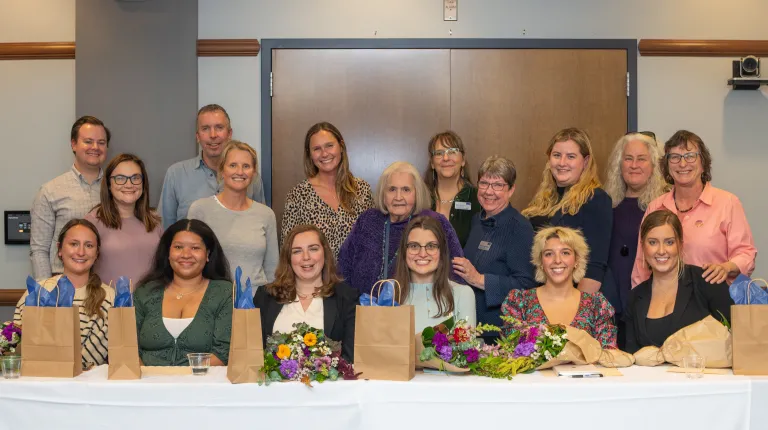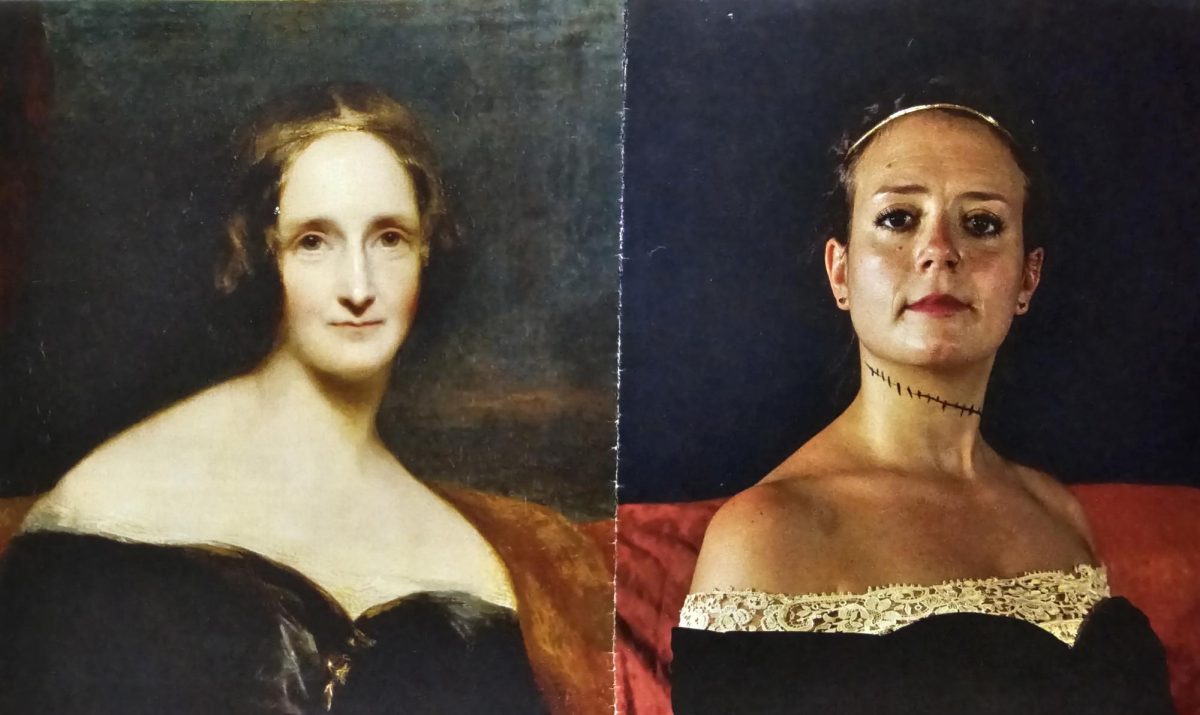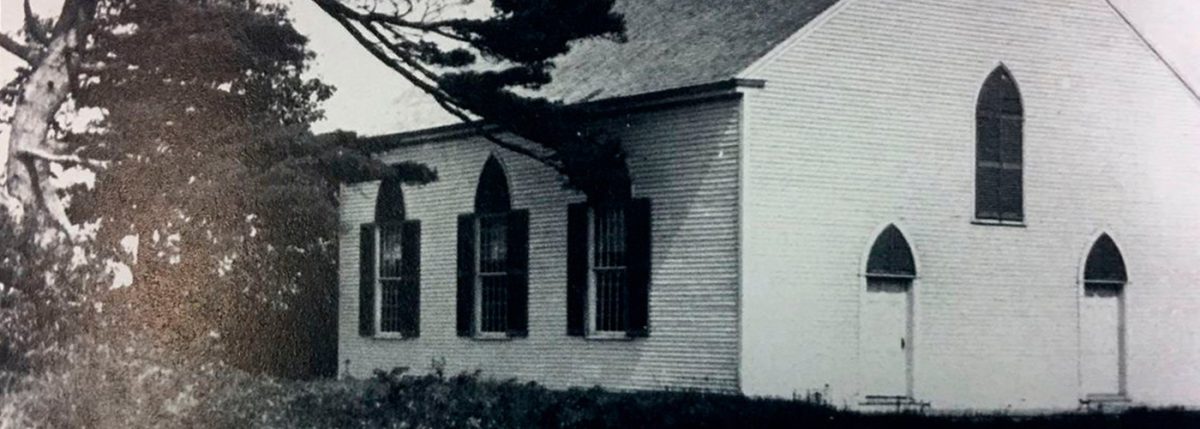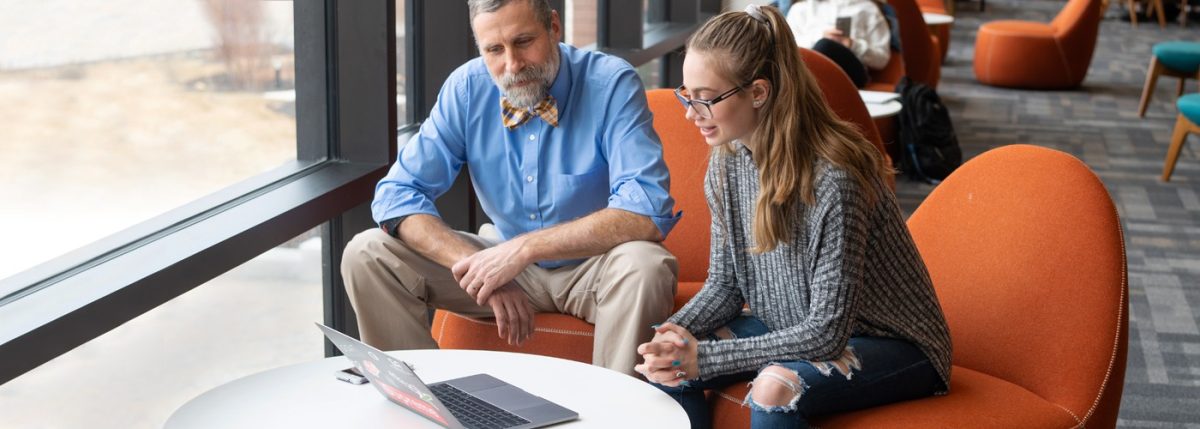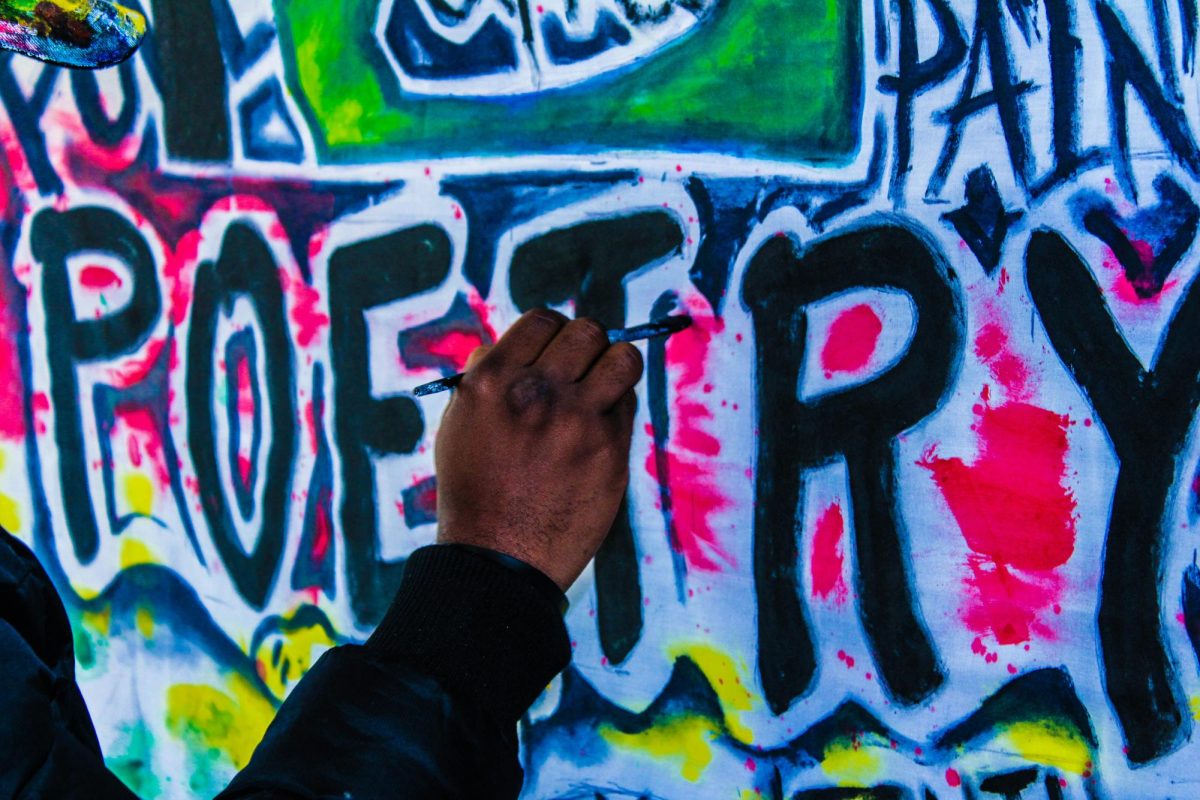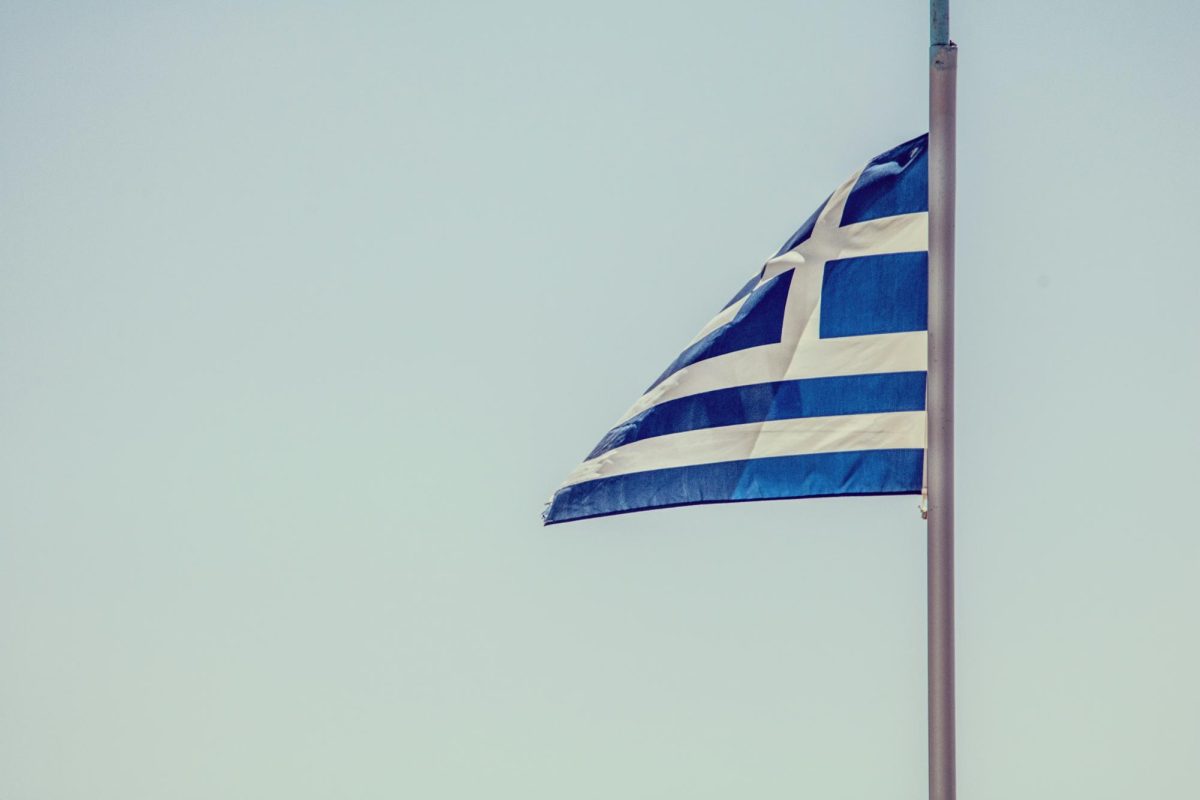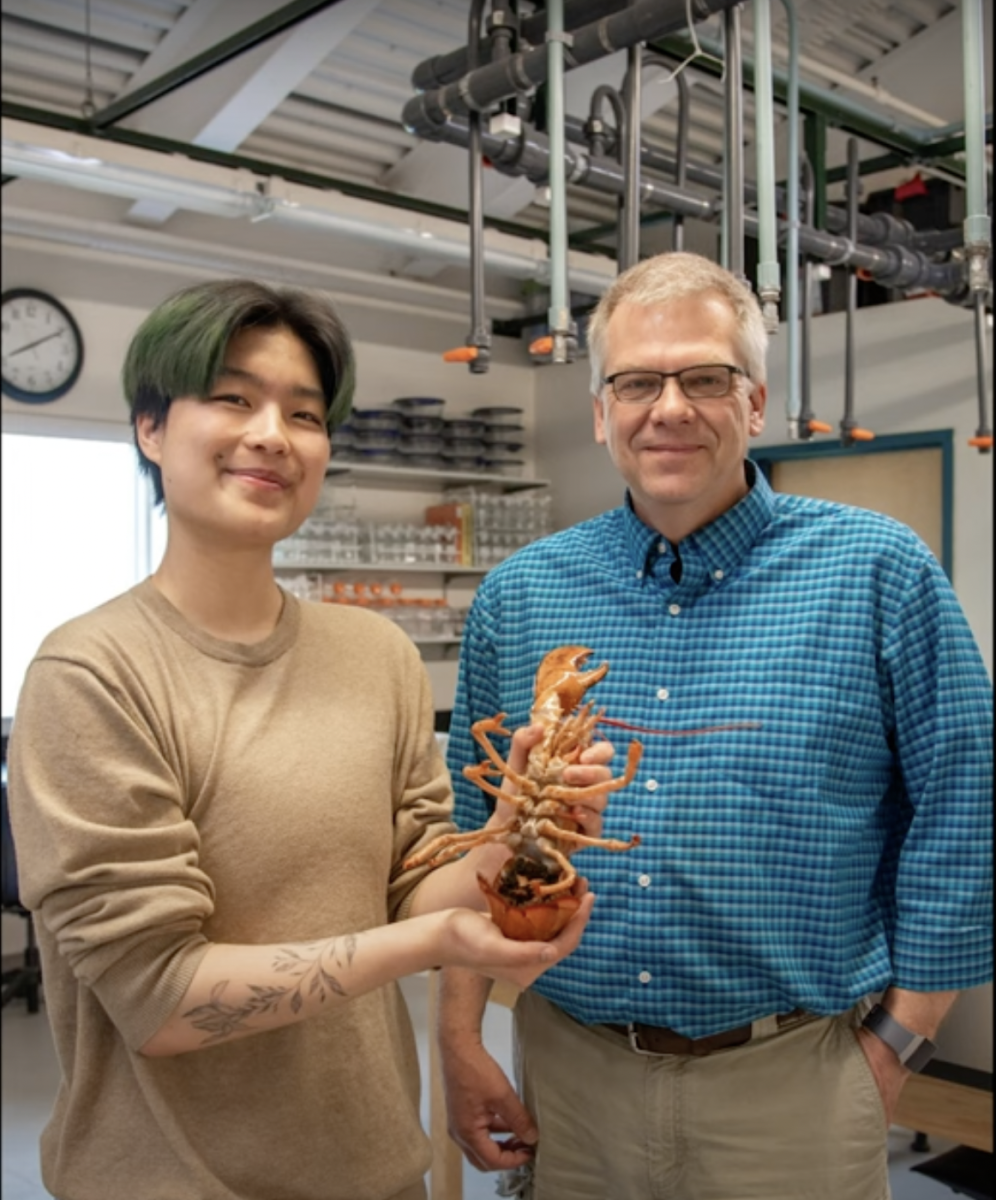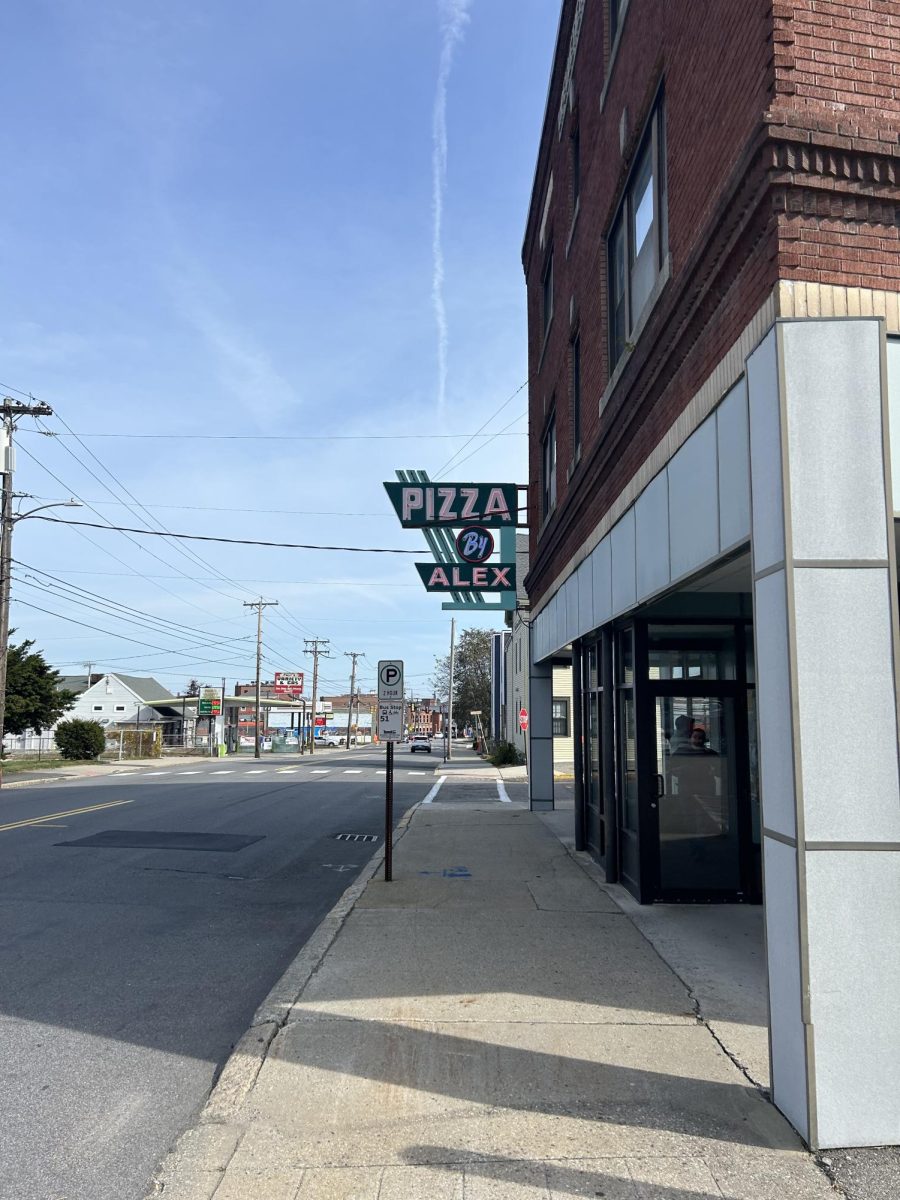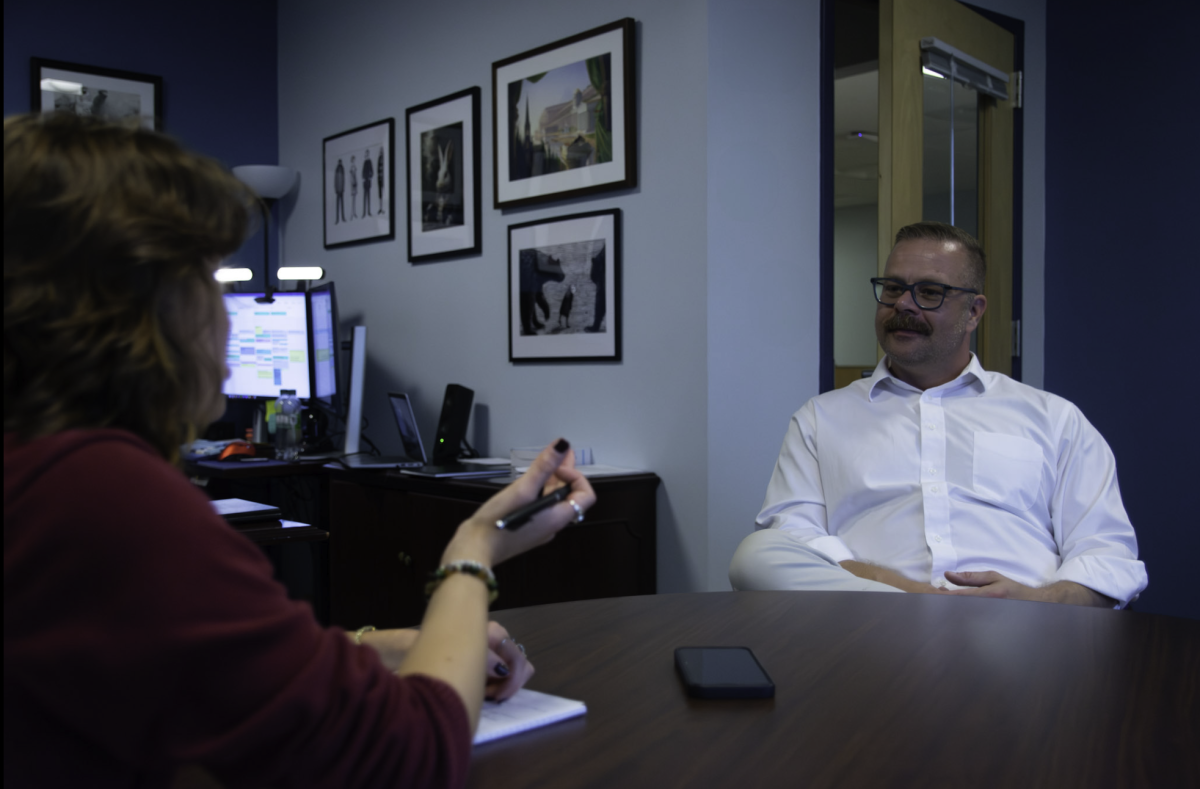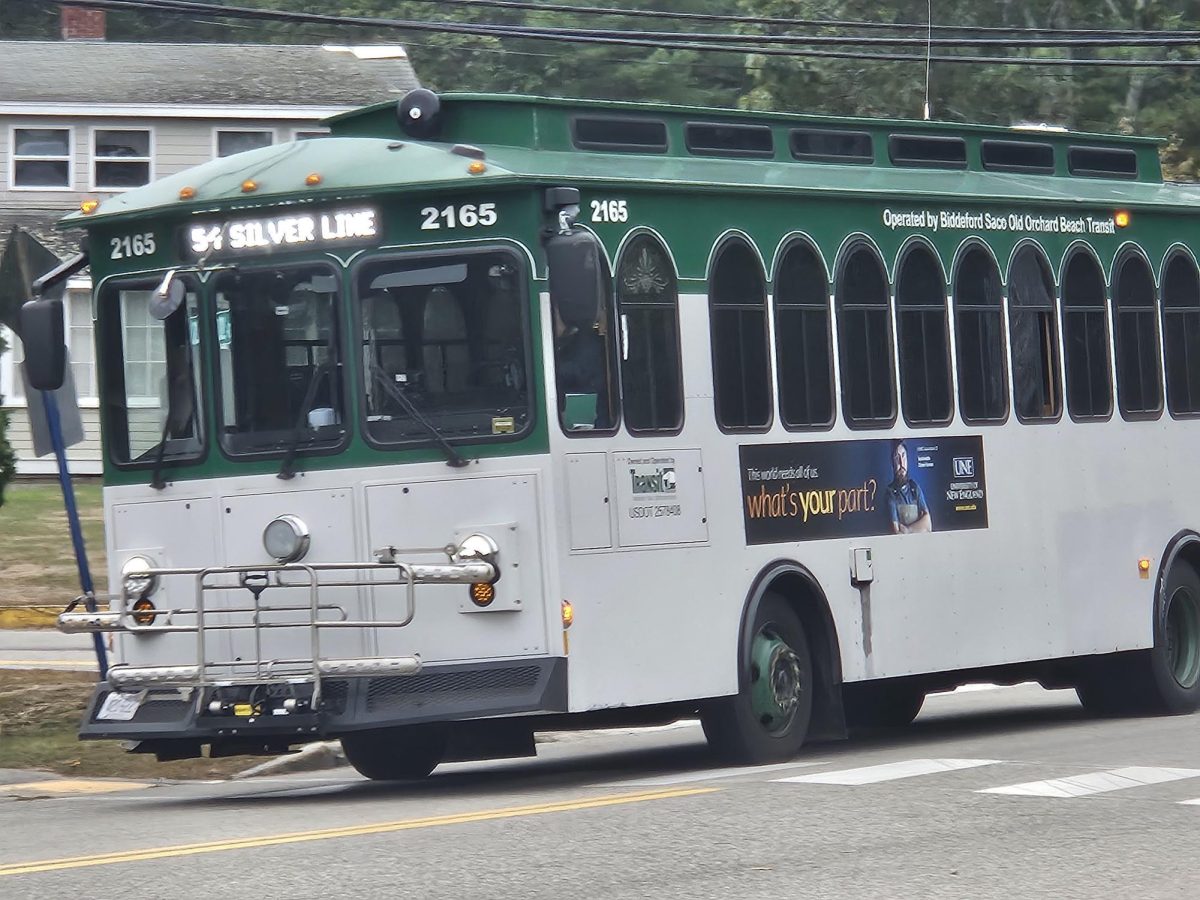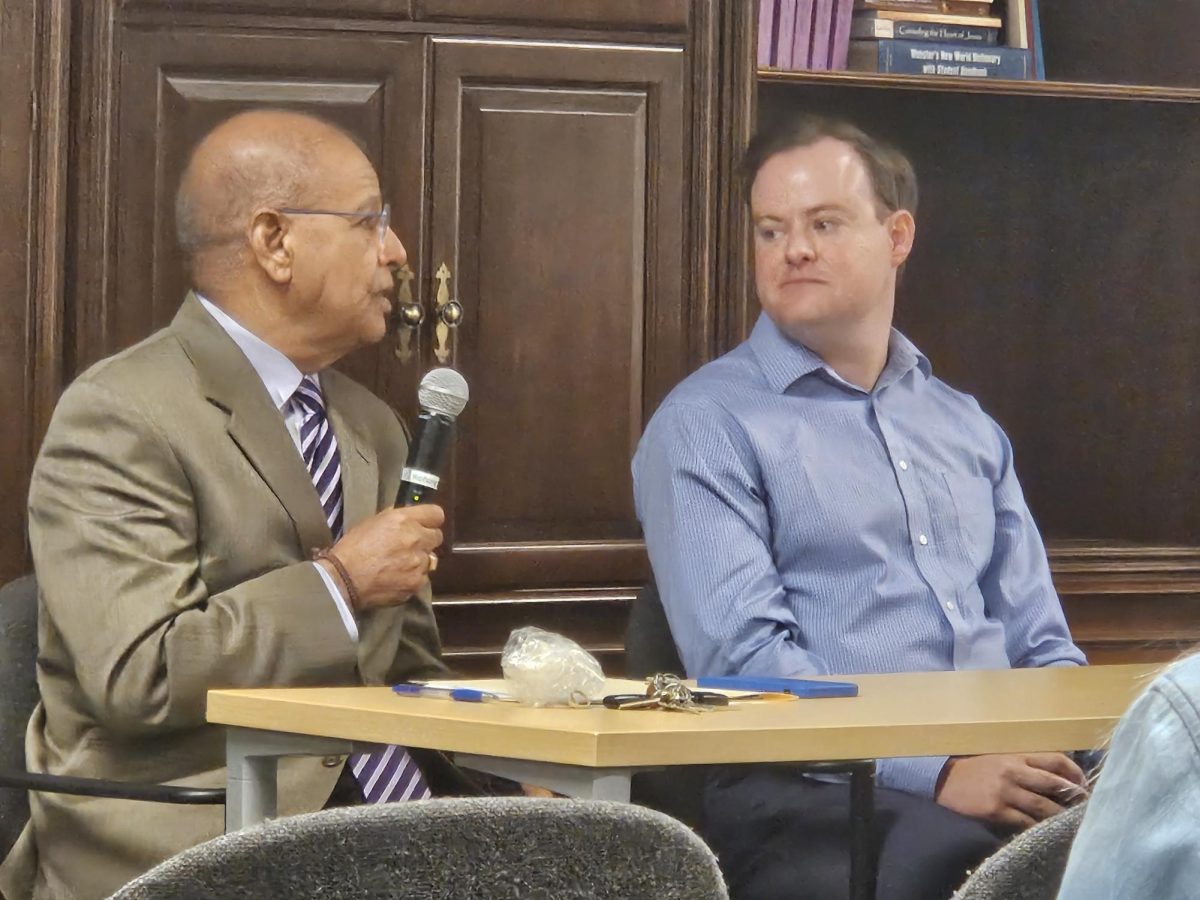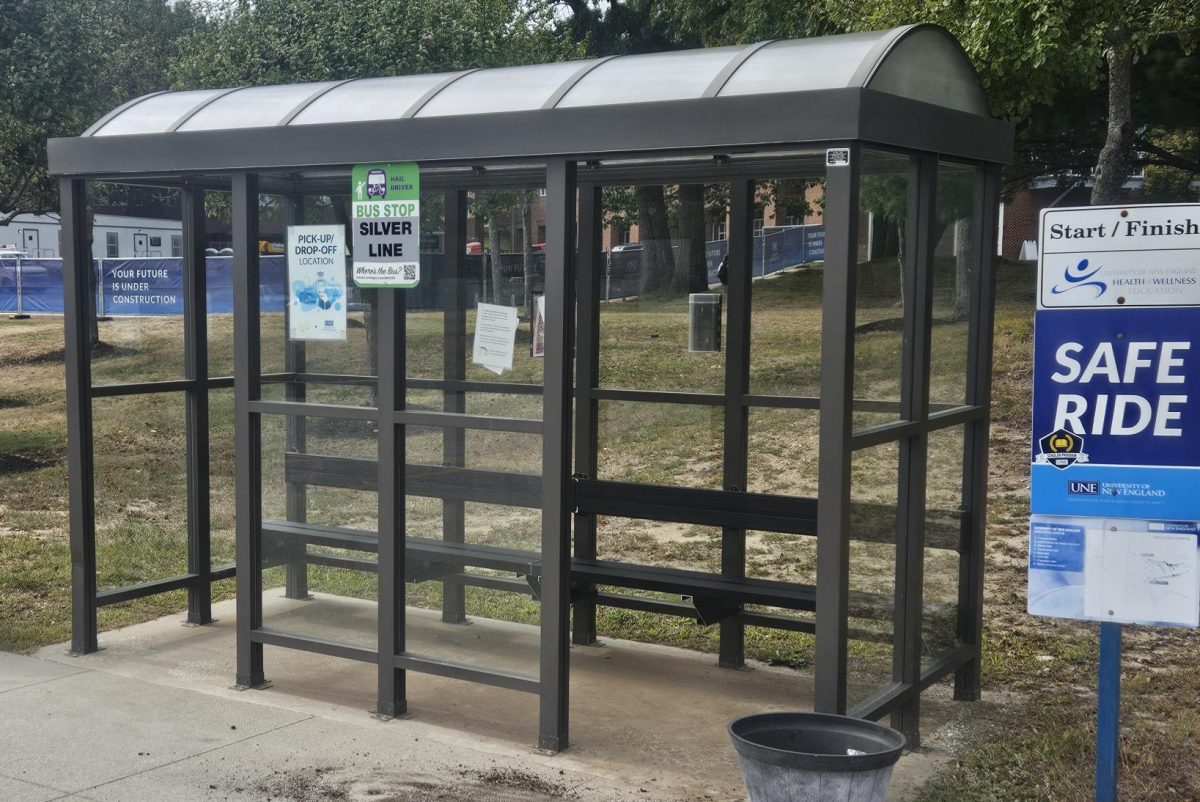Click Here to Listen:
Tempest is a student-run podcast that focuses on UNE’s School of Arts and Humanities on the Biddeford campus. Podcaster Chloe Boulle uses each episode to narrow in on topics including clubs, events, internship opportunities, extracurriculars, and the vibrant community that makes up UNE’s Biddeford campus.
Transcript (lightly edited for readability):
Dr. Linda Morrison: I am so very pleased to welcome you all to the celebration, the epic celebration of the twentieth anniversary of the Gender, Women, and Sexuality studies program here at UNE.
Chloe Boulle: In 2004, the University of New England debuted its minor in women’s studies. Over the past twenty years, the program has evolved, and its name and content have changed and expanded. Last year, in the fall of 2024, the program, now named Gender, Women, and Sexuality Studies, celebrated its twentieth anniversary. The event held for the anniversary featured a guest panel of alumni and also celebrated faculty who have built this program over the last twenty years. Hello and welcome to Tempest, a UNE Arts and Humanities podcast.
I’m your host, Chloe Boulle, and today we’ll be looking at the last twenty years of gender, women, and sexuality studies at UNE. In preparation for the twentieth anniversary event, I sat with Dr. Elizabeth DeWolfe, a co-founder of the minor and Doctor of History here at UNE, to talk about the GWS minor and their anniversary event.
Dr. Elizabeth DeWolfe: There are, you know, a number of programs at UNE that have achieved twenty-year status. They tend to be the majors in traditional college fields. I mean, no surprise there’s a history program and a psych program and such. But this is somewhat unusual to have a minor that is not only 20 years old, but has grown and blossomed in those twenty years.
Boulle: It’s really cool, I think, to see how it’s been supported through, like, after this event was announced, where I’ve heard about it from Dr. Cripps and Professor Allegra, where they were telling us that we have to go, I was like, that’s excellent.
Dr. DeWolfe: And that just continues to show how relevant these very issues are, that we still have not only a foothold and a place in the catalog, but continuing full classes, and students declaring the minor. So that in itself is a wonderful marker. And for me personally, it is one of the legacies that I’ll be most proud of when I come to the end of my time at UNE. Having co-founded this program and helping bring the lives of women to the forefront of the conversation is… that’s a good feeling.
Boulle: Dr. DeWolf co-founded the GWS program with Dorothy M. Healy, Professor of Literature and Health, and Maine Women Writers Collection director Dr. Jennifer Tuttle, who also spoke to me about the event and the minor in the few weeks leading up to the anniversary.
Boulle: So the program is celebrating its twentieth anniversary on October 10. Can you talk a little bit about preparing for the event?
Dr. Jennifer Tuttle: Oh, sure. Well, the most important thing I can say there is that it takes a village to celebrate a twentieth anniversary. But it’s been very exciting, and we are all really thrilled. You know, only last year, we were in a faculty meeting, and I sort of had a moment where, you know, occasionally you get a moment of clarity. And I said, ‘Oh my gosh, next year is our twentieth anniversary.’ And everyone sort of paused and was like, ‘What? How could that be?’ And so, yeah, we just realized that we really should do something this year to celebrate. So, we graduated our first then Women’s Studies minor, Sarah Ralph, in 2004, in the spring. She was a math major, and she was really interested in women’s studies and in women in STEM. And she decided to write a capstone project about that issue. Because she had followed her interest and taken sufficient numbers of courses even before there was a minor that then retroactively were included in the minor, she met all the goals, and so she was our first graduate, and we’ve been going strong ever since.
Boulle: When I spoke to doctors DeWolf and Tuttle, they both emphasized the importance of the students to the minor, one of the main reasons they decided to invite their alumni back to campus as a part of the twentieth celebration. I asked Dr. Tuttle about bringing back the alumni for the event, and she really emphasized how important the students are.
Dr. Tuttle: Look. Our students are the lifeblood of the program. They are incredible people, and they’ve done so much incredible work, and they teach us so much in the questions they ask, in the things they ask of us. And so we just felt like, I mean, of course it’s our life’s work to create the space for them to grow and thrive and become who they are, but really they’re the ones who are the life of the program. And so it was a no-brainer to bring them back.
Boulle: Then, I asked Dr. DeWolf for a little more history on the program.
Dr. DeWolfe: The program started as a women’s studies program twenty years ago, and it was really started as a combination of from the faculty, so from Professor Tuttle and I, and from students at the same time. And Professor Tuttle and I had talked about starting this type of program, as we are both interested in women’s issues, in history, and in literature. At the same time, we noticed that a number of our shared students were taking every class possible at UNE that had something to do with women’s issues, women’s history, women’s lives. And so it just grew organically from both the faculty side and the student side. And we actually, when we planned the program, those initial students were part of the conversation of: what did they want to see in the program, what did they want to get out of it. So it started, you know, twenty years ago, we were thinking primarily of women’s studies. And that was, you know, that was consistent with what went on at other universities at the time. But, as you’re well aware, times have changed over the last twenty years, and we’ve consistently changed with those times. So, for example, moving away from simply women’s studies to women and gender studies illustrates a step away from the thinking of dichotomy, right? You’re either male or female. Well, now we explore more of a spectrum of gender rather than rigid categories. So we added gender as a category of analysis. And then again, our most recent change was to bring in sexuality. So again, looking at individuals in let’s say the full portrait of their identities. And of course, gender, sexuality, biological sex, all of these things are intersecting in very complex ways. And so I would say over time, one thing that has certainly happened with the minor is we’ve deepened the complexity as we look at the full scope of human individuals. And that’s exciting. It’s challenging and it’s exciting.
Boulle: So, one of the most exciting things about the GWS minor is how diverse it is. Gender, women, and sexuality are not things that apply to just one field of study. As Dr. Linda Morrison, Doctor of Psychology and Program Coordinator for the minor, told me:
Dr. Morrison: Your question is, like, who should be interested in this? Athletic trainers, you know, coaches, nurses, people who want to go into the health care fields. Certainly psychologists, criminologists, police officers, you know the kinds of- and business folks. The workplace is diversified, and how do we handle it? How do we navigate being supervised by someone of a different gender? Workplace harassment? All those issues are really important to understand to be successful and to just be a good person.
Boulle: Another really interesting thing that Dr. Morrison really stressed to me when we spoke was that the GWS minor does not belong to a specific college. Instead, it is left open to any student who is interested in the program. And I really want to underline that. Because of this, it has one of the most expansive course catalogs amongst minors. And because of the way the GWS Minor has been built, you can count all of the classes you need for your GWS Minor towards your core classes as well.
Dr. Morrison: I think my favorite thing about the program is the ‘customize your core’ piece because it allows students to really, you know, some students go, ‘Why do I have to take all these gen ed classes?’ Well because we believe in a liberal arts education but you can pick your gen ed classes to be things that you really are interested in because there’s options in every category and under every attribute and if you’re interested in gender, women, social justice, the politics of social justice or sexuality studies, you could strategically choose all of your core attributes to double dip for gender, women and sexuality study minor program requirements. And that’s a real cool feature.
Boulle: Dr. Tuttle added:
Dr. Tuttle: Some of your other interviewees might have pointed this out, but one of the really great things about the minor that has been the same over the course of all these years is that it is intended to make visible an interest area or curiosity or strength that a student already has in their coursework. So they don’t have to take 18 additional credits beyond their core and beyond their major. They are required to take the intro course, which does satisfy a core requirement, by the way. And then the other courses can do double duty.
Boulle: And finally, from Dr. DeWolfe.
Dr. DeWolfe: Whether you’re headed into the social sciences or politics, if you’re in the humanities going into teaching or a STEM field, everyone is going to encounter women, people with gender, and the question of sexuality in their adult lives. So this is a program of study that’s going to serve you in whatever you do and wherever you live in your future.
Boulle: I attended the GWS twentieth anniversary event, and as a current student, I particularly enjoyed listening to the alumni speak. Since graduation, they had all gone on to lead meaningful and diverse lives, every one of them taking a different path that showed their own intelligence and perseverance. All of them talked about how the GWS program still helps them in their day-to-day lives. The alumni panelists talked to the students in the room about the importance of community, advocacy, and listening to others, all while trusting in your own self and speaking up for your beliefs in a constructive way. One of the biggest takeaways from the panel was that your path is not linear and has no expiration date. Many of the alumni made career changes while finding their path outside of college, and the GWS program helped them navigate that path, no matter where it went.
I hope you enjoyed this coverage of the GWS twentieth anniversary celebration, and I really hope that in ten years we get to hear from everyone again. And if you’re a current or prospective student and you haven’t checked out the GWS course offerings, you should give them a look. Maybe you’ll find something you really enjoy that will also go towards your core classes. A very special thanks to Dr. Elizabeth DeWolf, Dr. Jennifer Tuttle, and Dr. Linda Morrison for taking the time to sit and talk with me. And a special thanks to you for listening. The music for today’s podcast was Feel the Glow by Snoozy Beats, pulled from Free Music Archive.



